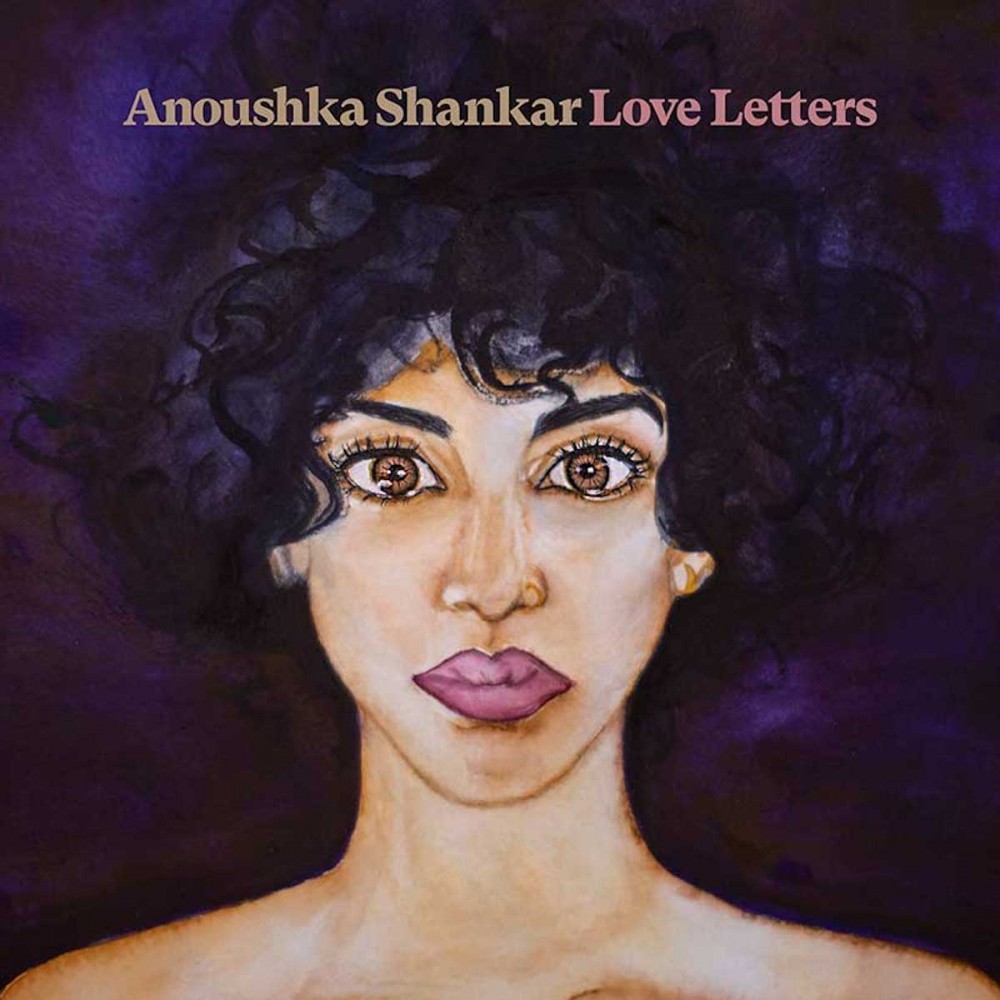Being the daughter of musical legend Ravi Shankar and half-sister of Norah Jones means that anything you release will be put under a scrutiny it might not warrant, being compared to one (or both), and risks being being deemed too poppy or too traditional. With ‘Love Letters’, Anoushka Shankar has made something that bridges both her father and half-sister’s work, something that’s all her own. It’s rich in the tradition of Indian music but has a poppy sheen to it, combining her love of the old and the new to create a sound that feels genuinely exciting.
The first thing that jumps out from ‘Love Letters’ is how personal everything feels – the opening sitar salvo of ‘Bright Eyes’, for example, sounds like Shankar could be in the next room, playing just for you. The dripping-in-emotion chorus refrain of “Do you call her bright eyes too?” is delivered with the blankness of someone processing loss – transporting us into her headspace. But instead of being angry there’s a tenderness to ‘Bright Eyes’ seldom heard in breakup albums, which, in turns out, ‘Love Letters’ effectively is.
It is on ‘Loveable’ that Shankar really heightens the emotion impact. The music is minimal with an air of romance, but it is the harmonies from collaborators Ibeyi (twin sisters) that underpin the song’s deeply burning question: “Am I still Loveable, if you stop living me?”. Again, the delivery is flawless, with no trace of anger or desperation, just someone who is trying to get their life back together after a massive personal loss.
‘Space’ is one of the poppiest moments of the album, with driving sitar and uplifting harmonies. Here, a trace of resentment spikes through in Shankar’s vocals: her heckles are up and she’s venting through hypnotic sitar riffs.
Throughout the project Shankar collaborates with forward-thinking female musicians – Alev Lenz, Shilpa Rao, engineer Heba Kadry, Ayanna Witter-Johnson on vocals and cello, and twin sisters Ibeyi – reflecting the way women club around one another at times of crisis, that supportive nature specific to sisterhood. In a way, the album is as much a celebration of this as it is about heartbreak.
‘Love Letters’ is also about what happens next, after a break up. All the self-doubt, pain, and unanswerable questions that keep you awake at strange hours of the night is met by music that’s full of hope. It is this hope that makes ‘Love Letters’ such a remarkable listen. Shankar transforms her sitar into a beacon, lighting the way on a dark despondent night. Her ability to skew traditional mesmeric melodies into something that transcends genres whilst telling honest stories makes ‘Love Letters’ a career high.
7/10
Words: Nick Roseblade
– – –
– – –
Join us on the ad-free creative social network Vero, as we get under the skin of global cultural happenings. Follow Clash Magazine as we skip merrily between clubs, concerts, interviews and photo shoots. Get backstage sneak peeks, exclusive content and access to Clash Live events and a true view into our world as the fun and games unfold.

